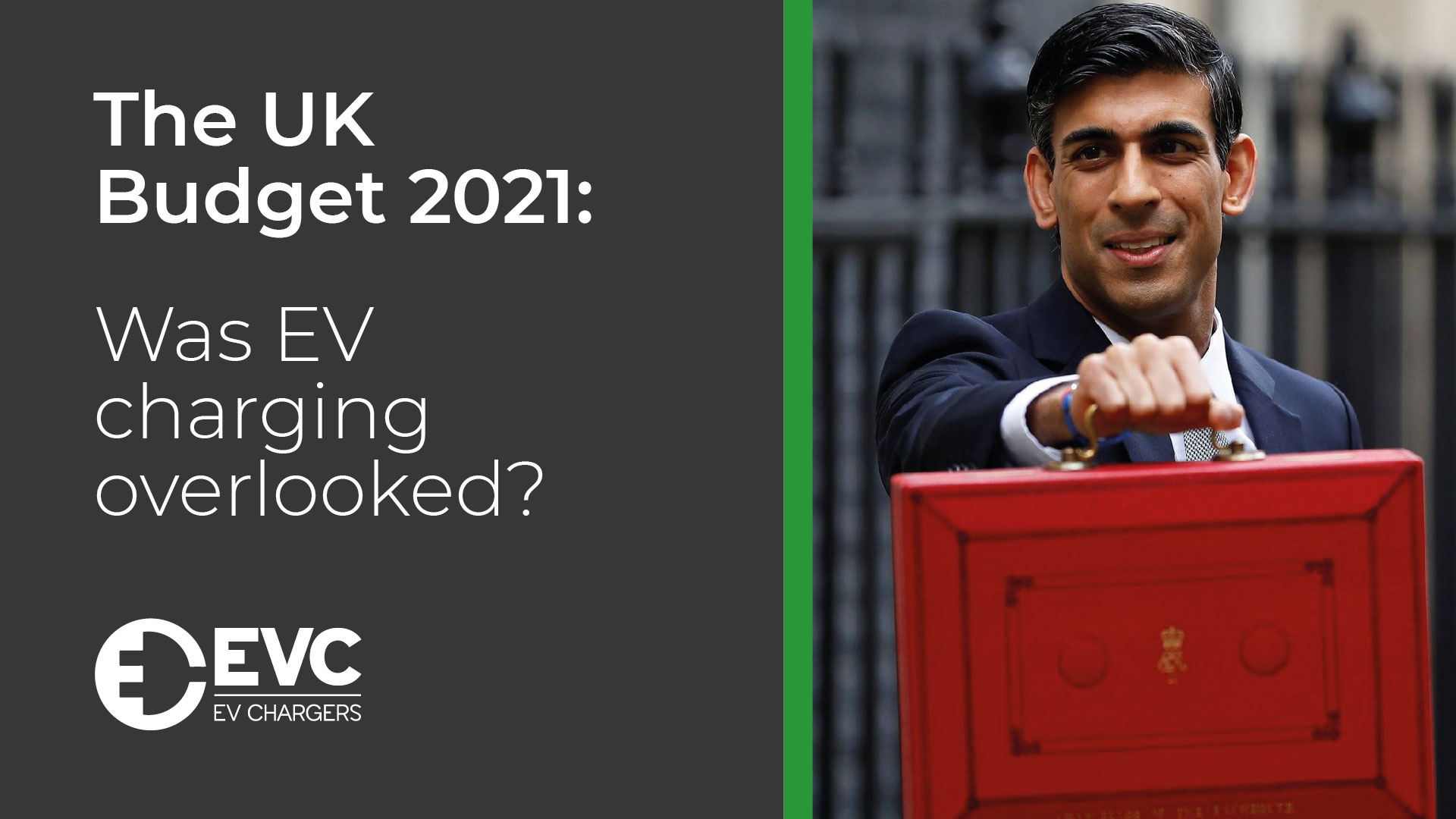The UK Budget 2021: Was EV charging overlooked?

With EV infrastructure in the UK lagging behind the ever increasing uptake of electric vehicles, the industry waited with baited breath for Rishi Sunak to announce his intent in the Budget for keeping the country on track with meeting demand…. unfortunately many feel the e-mobility sector was overl ooked.
ooked.
It wasn’t all bad news though, as investment was outlined to help the Government reach their net-zero target. £4.8 million was pledged to create a hydrogen hub in Holyhead, Wales, which is expected to pilot the creation of hydrogen from renewable energy and its use as a fuel for goods vehicles. A scheme which could support the creation of 500 jobs.
But is this enough?
Whilst it is a step in the right direction, the lack of any announcements of investment in EV charging infrastructure itself surprised a few. Electric vehicle sales were up 43% in 2020, despite overall car sales slumping by a fifth during the coronavirus pandemic. This puts further pressure on the need for more available charge points. In a recent article from the BBC, they state the UK will need 400,000 public chargers by 2030, up from 35,000 currently.
As there was no push in this Budget from the Government for the expansion of current infrastructure, where does the responsibility for building a sustainable future lie, and how do we keep up with demand?
The responsibility now falls on two parties – the private companies supplying EV charge points, and freeholders of land understanding the requirement to install additional infrastructure. The only solution for improving charging infrastructure in the UK is recognising the trend in EV uptake, and understanding that if your development isn’t EV ready, you’ll soon get left behind.
One of the primary deterrents for freeholders in recent years has been the cost of charge point installation. With EVC, this is no longer a factor. EVC are one of the first private companies to offer a fully-funded solution, meaning freeholders can future-proof their car parks at no cost.
To stay on track with ever-increasing demand, the UK must rapidly grow EV infrastructure, and there has never been a better time to get started.
